Tonsillectomy/Adenoidectomy
1. Pain: Adults can experience pain in the throat for 10 to 14 days. Children usually 7 to 10 days. Patients may also experience referred pain to their ears following surgery. The patient’s pain may be consistent for the first few days but can increase around day 4 to 7. This corresponds to when scabs start to dissolve from the tonsil beds. Younger children typically maintain pain control with the use of Tylenol. The patient may have a prescription pain medication sent to their pharmacy. You may schedule these at regular intervals while the patient is awake. It is not usually necessary to wake the patient at night to give the medications. Stool softeners may be helpful if prescription pain medication is taken for more than 3 days.
2. Diet: HYDRATE, HYDRATE, HYDRATE. It is very important, especially for children, to consistently drink liquids in the first week after surgery to prevent dehydration. This may help lessen throat pain, as well. Hydrating should be done at regular intervals, such as every hour while awake. Popsicles, water, and low calories electrolyte drinks are encouraged. You may observe the color and quantity of the urine to gauge hydration. Darker yellow urine is a sign of poor hydration. Solid foods may be initiated after surgery in small amounts and increased as tolerated. Acidic juices and dry foods such as popcorn, chips, and crackers should be avoided for the first 10 days.
3. Activity: The patient should remain inactive at home for the first 7 days. Children should avoid running or vigorous activity for 10 days after surgery. Avoid heavy lifting and strenuous activity. Sports can resume after 2 weeks if approved by your surgeon. Most adults will not return to work full time until after 1 week.
4. Bleeding: Spitting up or vomiting small amounts of dark, brown blood is often seen in the first 2 – 3 days. If fresh, bright, red blood is seen, the patient should, if able, gargle with cold water to try to remove any clots that are present. If the bleeding continues (more than 2 tablespoons), then contact our office immediately (317) 844-5656, day or night or go to the nearest Emergency Room.
5. Nausea and vomiting are not uncommon after surgery. If vomiting continues, the patient may become dehydrated. You may be given a prescription for anti-nausea medication. If not, and this medication is needed, please contact our office.
6. Low grade fever up to 100 degrees is frequently seen. If a temperature above this does not respond to Tylenol, please call the office.
7. Tips: Sleeping with the head of the bed elevated 30 degrees may be helpful for the first week after surgery. An ice pack to the neck can be soothing. Two or three cans of dietary supplement (e.g. Ensure) can help with nutritional requirements during healing. Chewing gum is encouraged and may help with saliva and swallowing.

